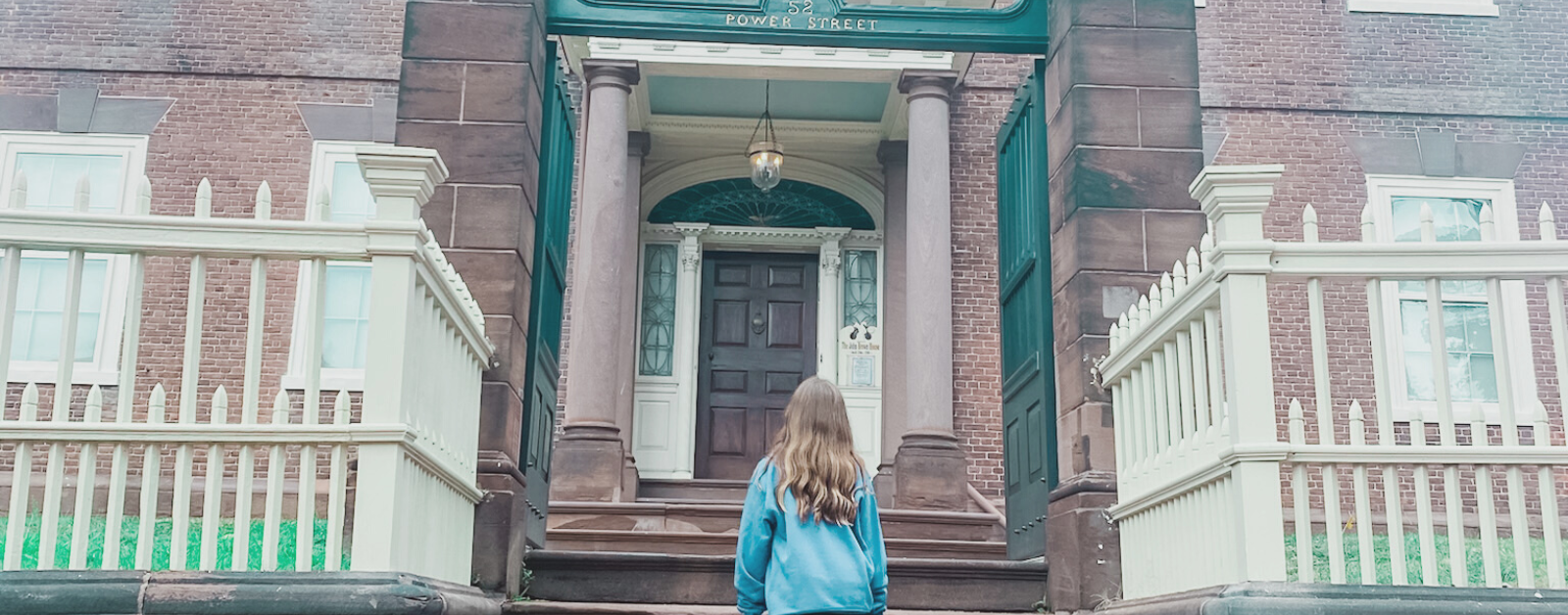There’s a story of racial injustice that still needs to be told in the Northeast. I’ve told a few people about my vision for a place that tells this story. I call it, “The Museum of Northern Complicity.” I’ve been told no one would ever visit that museum. Complicity is almost worse than guilt, because we feel even more powerless over our involvement in it. No one wants to talk about complicity.
But I also have a sense that until white Northerners acknowledge our part in the racial injustices of this nation, we will keep ourselves from experiencing freedom and friendship and spiritual renewal. We will keep ourselves from justice and healing.
This summer, our family sought out spaces that might help us understand this history, and while we did learn a lot, it left me wanting more.
We visited Rhode Island after we learned that the largest slaveholding family in the United States came from Bristol, Rhode Island. We watched Traces of the Trade, a really helpful documentary created by a descendant of the DeWolf family. It follows a group of family members along the route of the triangle trade—Bristol to Ghana to Cuba and back again—as they learn the history and begin to reckon with it. (Our entire family appreciated it, including the kids.)
We visited the DeWolf home in Bristol as well as the John Brown House in Providence. We read about the Middle Passage and recreated the horribly tight quarters for that terrible journey. It was all helpful and compelling and well done, but it wasn’t enough.
We visited some museums that tell the story of the pre-Civil War North. We need spaces that tell the story of our more recent past. That trace the connections between Northern wealth and Southern enslavement. That point out the functional segregation within Northern schools to this day. That link redlining in the past to zoning laws today.
The final scene of Traces of the Trade shows Katrina Browne, the narrator and producer of the film, preaching in the Episcopal church that has been home to many of her ancestors, the DeWolfs, for many years. Her sermon catalyzes dozens of people in the church to come forward in some act of confession and need. It’s a little gesture towards the types of things we need–physical acts of lament and repair, opportunities to engage our bodies, minds, and spirits in the history and present-day injustices.
So I’m still hoping for a Museum of Northern Complicity, though I will need help from a marketing guru to find a different name for it. I’m still looking for ways to tell the story of complicity that will allow us to heal.
More with Amy Julia:
- New Haven Racial History Tour
- A 3-Day Civil Rights Tour Itinerary for Families
- When You Say the Wrong Thing
- On Juneteenth, Beyond Anti-Racism
If you haven’t already, you can subscribe to receive regular updates and news. You can also follow me on Facebook, Instagram, Twitter, Pinterest, YouTube, and Goodreads, and you can subscribe to my Love Is Stronger Than Fear podcast on your favorite podcast platform.







